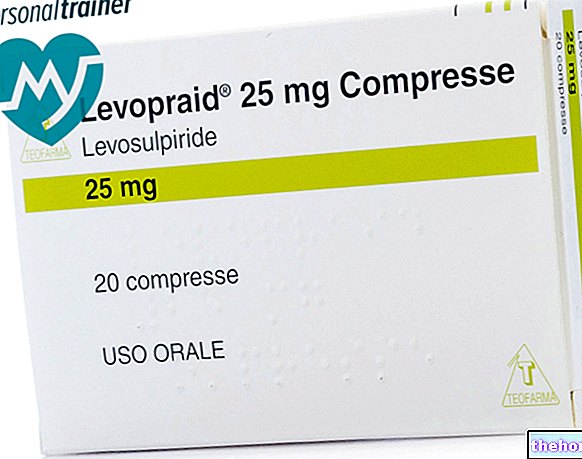Active ingredients: Manidipine (Manidipine hydrochloride)
IPERTEN 10mg tablets
IPERTEN 20mg tablets
Indications Why is Iperten used? What is it for?
Iperten contains an active ingredient called Manidipine hydrochloride. Manidipine hydrochloride belongs to a group of medicinal products called calcium channel blockers, which blocks the flow of calcium into the smooth muscle cells of the blood vessels causing vasodilation and a corresponding reduction in blood pressure.
Iperten is used to treat hypertension (mild and moderate hypertension).
Contraindications When Iperten should not be used
Do not take Iperten:
- if you are allergic (hypersensitive) to Manidipine, or to other calcium channel blockers or to any of the other ingredients of Iperten
- if you have severe kidney problems
- if you have heart problems, for example if you have had a heart attack less than 4 weeks before or if you have unstable angina pectoris (chest pains due to inadequate oxygen supply to the heart) or if you suffer from untreated heart failure.
- if you have moderate or severe liver problems
Iperten should not be given to children and adolescents under 18 years of age
Precautions for use What you need to know before taking Iperten
Be careful with Iperten especially:
- if you have known heart problems (e.g. cardiac dysfunction of the left ventricle, obstruction of the left ventricular outflow channel, right heart failure and in patients with sinus node dysfunction not treated with a pacemaker)
- if you suffer from coronary heart disease
- if you are elderly or suffer from mild liver problems (see section "How to use Iperten")
You should also tell your doctor:
- if you are pregnant, if you think you are pregnant, if you are planning to become pregnant or if you are breastfeeding (see section "Pregnancy and breastfeeding")
Interactions Which drugs or foods can modify the effect of Iperten
Tell your doctor if you are taking or have recently taken any other medicines, even those without a prescription.
It is especially important to tell your doctor if you are taking any of the following medications:
- diuretics (used to remove water from the body by increasing urine production) and other medicines that lower blood pressure, such as β-blockers and any other antihypertensive drugs. Indeed, these medicines can intensify the antihypertensive effect of Iperten
- drugs that affect the metabolism of the active substance contained in Iperten, such as drugs with antiprotease action, cimetidine (used to treat stomach ulcers), or certain antibiotics (used to treat bacterial diseases, such as for example clarithromycin, erythromycin and rifampicin), o some antifungals (used to treat fungal infections, such as ketoconazole and itraconazole), o phenytoin, carbamazepine, phenobarbital, terfenadine and astemizole or class III antiarrhythmics used for heart rate problems (such as amiodarone and quinidine).
- Medicines containing digoxin, used to treat heart ailments.
If you are taking any of the drugs mentioned above, your doctor may prescribe another drug or adjust the dosage of Iperten or the other drug.
Taking Iperten with food and drink
Do not take Iperten with grapefruit juice, as this may lower your blood pressure too much.
Drinking alcohol can intensify the pressure reduction obtained with Iperten.
Warnings It is important to know that:
Pregnancy and breastfeeding
Pregnancy
Tell your doctor if you are pregnant, if you think you are pregnant or if you are planning to become pregnant. Since Iperten cannot be taken during pregnancy, your doctor will advise you to stop treatment before becoming pregnant or as soon as you know you are pregnant, and will prescribe the correct therapy.
Feeding time
Tell your doctor if you are breastfeeding or about to breastfeed. Since Iperten should be avoided if you are breastfeeding, your doctor will advise you to stop breastfeeding if treatment with Iperten is absolutely necessary.
Driving and using machines
Occasionally, dizziness may occur in some people during the treatment of hypertension. If this happens to you, you should inform your doctor before engaging in activities such as driving and operating machinery.
Important information about some of the ingredients of Iperten
If you suffer from intolerance to some types of sugar, contact your doctor before taking Iperten.
Dose, Method and Time of Administration How to use Iperten: Posology
Dosage Always take Iperten exactly as your doctor has told you. You should consult your doctor if you are unsure.
In the beginning, the usual dose of Iperten is 10mg once a day. After 2-4 weeks of treatment, if the reduction in blood pressure is insufficient, your doctor may increase the dose up to 20mg once a day. of habitual maintenance
Iperten must not be given to children and adolescents (see section "Do not take Iperten).
Decrease in dose
If you are elderly or have kidney or liver problems, your doctor may prescribe an appropriately reduced dose.
Administration
Iperten should be taken in the morning after breakfast. The tablet should be swallowed with a sufficient amount of water, without chewing it.
You should try to take your daily dose at the same time each day.
Duration of treatment
It is important that you keep taking Iperten as long as your doctor sees fit.
Always take exactly the same dose as prescribed, without changing it before discussing it with your doctor first.
Overdose What to do if you have taken an overdose of Iperten
If you take more Iperten than you should
If you accidentally take too many tablets, contact your doctor immediately as this can cause your blood pressure to drop abnormally.
If you forget to take Iperten
If you accidentally forget to take a dose of Iperten, just take the next dose as normal. Do not take a double dose to make up for a forgotten one.
If you stop using Iperten
It is important that you keep taking Iperten for as long as your doctor sees fit.
If you have any further questions on the use of Iperten, ask your doctor.
Side Effects What are the side effects of Iperten
Like all medicines, Iperten can cause side effects, although not everybody gets them. If any of the side effects develop, they are likely to be mild and temporary. However, some effects can be serious and require medical attention.
Common side effects (which may affect more than 1 in 100 but less than 1 in 10 patients): accumulation of fluid in the tissues resulting in swelling (edema), flushing, dizziness, dizziness, headache, palpitations
Uncommon side effects (which may affect more than 1 in 1000 but less than 1 in 100 patients): tingling, painful numbness (paraesthesia), increased heart rate (tachycardia), low blood pressure (hypotension), difficulty breathing ( dyspnoea), weakness, dry mouth, nausea, vomiting, constipation, gastrointestinal disorders, rash, skin inflammation with redness and itching (eczema), transient alteration of some enzymes found in blood tests (SGOT, SGPT, LDH, GammaGT, alkaline phosphatase , BUN and blood creatinine).
Rare side effects (which may occur in more than 1 in 10,000 patients but less than 1 in 1,000): irritability, erythema, itching, stomach pain, abdominal pain, hypertension, somnolence, chest pain, chest pain due to inadequate inflow of heart blood (angina pectoris), diarrhea, loss of appetite (anorexia), abnormal blood tests (e.g. increased bilirubin), jaundice.
Very rare side effects (which may affect less than 1 in 10,000 patients): heart attack, increased frequency and intensity of these attacks in patients suffering from angina pectoris; inflammation and swelling of the gums which usually reduces with the interruption of treatment and which requires careful dental hygiene.
Not known side effects (frequency cannot be estimated from the available data) Abnormal skin redness (erythema multiforme), skin disorders with abnormal redness and peeling (exfoliative dermatitis).
If any side effect gets serious or if you notice any side effects that are not listed in this leaflet, please ask your doctor or pharmacist.
Expiry and Retention
Keep out of the reach and sight of children.
Do not use Iperten after the expiry date indicated on the package. The expiry date refers to the last day of the month.
Store Iperten in its original packaging in order to protect it from light.
Medicines should not be disposed of via wastewater or household waste. Ask your pharmacist how to dispose of medicines you no longer use. These measures will help protect the environment.
What Iperten contains
Iperten is a medicinal product that contains the active ingredient Manidipine hydrochloride.
Each tablet of Iperten 10mg contains: 10mg of Manidipine hydrochloride
Each tablet of Iperten 20mg contains: 20mg of Manidipine hydrochloride
The other ingredients are: lactose monohydrate, maize starch, low substituted hydroxypropylcellulose (L-HPC-31), hydroxypropylcelloulose HPC-L, magnesium stearate, riboflavin (E101)
Description of what Iperten looks like and contents of the pack
Each box of Iperten 10mg tablets contains 14, 28, 30, 56, 84, 90, 98, 112 pale yellow round tablets, with pre-cut line, packed in blisters.
Each box of Iperten 20mg tablets contains 14, 28, 30, 56, 84, 90, 98, 112 yellow-orange oval tablets, with pre-breaking line, packed in blisters.
Not all pack sizes may be marketed.
Source Package Leaflet: AIFA (Italian Medicines Agency). Content published in January 2016. The information present may not be up-to-date.
To have access to the most up-to-date version, it is advisable to access the AIFA (Italian Medicines Agency) website. Disclaimer and useful information.
01.0 NAME OF THE MEDICINAL PRODUCT
IPERTEN
02.0 QUALITATIVE AND QUANTITATIVE COMPOSITION
IPERTEN 10 mg tablets
Each tablet contains:
Manidipine hydrochloride 10 mg.
Excipients: lactose monohydrate 119.61 mg / tablet
IPERTEN 20 mg tablets
Each tablet contains:
Manidipine hydrochloride 20 mg.
Excipients: lactose monohydrate 131.80 mg / tablet
For excipients, see section 6.1.
03.0 PHARMACEUTICAL FORM
Tablet.
Iperten 10 mg: round tablet with score line, light yellow.
Iperten 20 mg: yellow-orange oval tablet with score line.
04.0 CLINICAL INFORMATION
04.1 Therapeutic indications
Mild to moderate essential hypertension.
04.2 Posology and method of administration
The recommended starting dose is 10 mg once a day. After 2-4 weeks of treatment, if the antihypertensive effect is insufficient, it is recommended to increase the dosage to the usual maintenance dose of 20 mg once a day.
Use in the elderly
In view of the slowing of metabolic processes in elderly patients, the recommended dose is 10 mg once a day. This dosage is adequate in most elderly patients; dose increases require careful risk / benefit assessment on an individual basis.
Use in patients with renal or hepatic dysfunction
Increasing the dose from 10 to 20 mg once daily should be carefully considered in patients with mild to moderate renal dysfunction.
Given the extensive hepatic metabolism of manidipine, a dose of 10 mg once daily should not be exceeded in patients with mild hepatic dysfunction (see also Section 4.3 "Contraindications").
Iperten is contraindicated in pediatric age (see section 4.3).
The tablet should be swallowed in the morning after breakfast, without chewing, with a little liquid.
04.3 Contraindications
Hypersensitivity to the active substance manidipine or to other dihydropyridines or to the excipients of the product. Pediatric age. Unstable angina pectoris and myocardial infarction for less than 4 weeks. Untreated heart failure.
Severe renal dysfunction (creatinine clearance
Moderate to severe hepatic dysfunction.
04.4 Special warnings and appropriate precautions for use
In patients with mild hepatic insufficiency the administration of the product should be done with caution since the antihypertensive effect could be increased (see also Par. 4.2 "Posology").
In consideration of the slowing of metabolic processes in elderly patients, a dosage adjustment is required (see also Section 4.2 "Posology").
Manidipine should be administered with caution in patients with left ventricular dysfunction, in patients with left ventricular ejection obstruction, in patients with right heart failure and in patients with sinus node dysfunction (if a pacemaker is not implanted).
Since no studies are available in stable coronary patients, caution is required in use in such patients due to a possible increased coronary risk (see Section 4.8).
As no in vivo interaction studies are available on the effects of CYP3A4 inhibitor or inducer drugs on the pharmacokinetics of manidipine, IPERTEN should not be administered concomitantly with CYP3A4 inhibitors (e.g. antiprotease, cimetidine, ketoconazole, itraconazole, erythromycin), clarithromycin. and inducers of cytochrome CYP3A4 (e.g. phenytoin, carbamazepine, phenobarbital and rifampicin). (see par. 4.5).
Particular caution must be exercised in prescribing manidipine concomitantly with other substrates of CYP3A4, such as for example terfenadine, astemizole, quinidine and class III antiarrhythmics such as amiodarone (see section 4.5).
Patients with rare hereditary diseases of galactose intolerance, the Lapp lactase deficiency or glucose-galactose malabsorption should not take this drug.
04.5 Interactions with other medicinal products and other forms of interaction
The antihypertensive effect of manidipine can be enhanced by the combination with diuretics, β-blockers and in general with other antihypertensive drugs.
In vitro studies have shown that the potential inhibitory effect of manidipine on cytochrome P450 can be considered clinically irrelevant.
As with other calcium channel blockers with a dihydropyridine structure, the metabolism of manidipine is likely to be catalysed by cytochrome P450 3A4. As no in vivo interaction studies are available on the effects of CYP3A4 inhibitor or inducer drugs on manidipine pharmacokinetics, IPERTEN should not be administered with CYP3A4 inhibitors, such as antiproteases, cimetidine, ketoconazole, itraconazole, erythromycin and clarithromycin as well. with CYP3A4 inducers, such as phenytoin, carbamazepine, phenobarbital and rifampicin (see section 4.4). Caution is required in concomitant prescribing of manidipine and other CYP3A4 substrates, such as terfenadine, astemizole, quinidine and class III antiarrhythmic drugs such as amiodarone (see section 4.4).
Furthermore, the concomitant administration of calcium channel blockers in combination with digoxin can lead to an increase in glucoside levels.
Alcohol: similarly to other antihypertensives with vasodilator activity, the concomitant intake of alcohol requires caution as it could enhance its effect.
Grapefruit juice: the metabolism of dihydropyridines can be inhibited by grapefruit juice, resulting in an increase in their bioavailability and an increase in their hypotensive effect. Therefore manidipine should not be taken at the same time as grapefruit juice.
No interaction phenomena with oral hypoglycemic agents have been identified.
04.6 Pregnancy and lactation
No clinical data are available on exposed pregnant women.
Studies performed with manidipine in animals have provided insufficient information on embryo-fetal development (see Section 5.3). Since other dihydropyridine analogues have been found to be teratogenic in animals and the potential risk for humans is unknown, for reasons of safety manidipine should not be administered during pregnancy.
Manidipine and its metabolites are excreted in high quantities in the milk of female rats during lactation. Since it is not known whether manidipine is excreted in human milk, the use of manidipine hydrochloride should be avoided during lactation. treatment with manidipine hydrochloride were irreplaceable, breastfeeding should be stopped.
04.7 Effects on ability to drive and use machines
Since dizziness may occur as a result of the reduction in blood pressure, patients should be warned to exercise caution when using machines and driving motor vehicles.
04.8 Undesirable effects
The most common adverse reactions (≥1% and palpitations, hot flashes, headache, edema, dizziness and dizziness.All of these adverse reactions are attributable to the vasodilating properties of manidipine. These are dose-dependent reactions and usually resolve spontaneously with continued treatment.
The following undesirable effects have been observed during therapy with IPERTEN and other dihydropyridines, with frequencies: very common ≥1 / 10; common ≥1 / 100 e
Reporting of suspected adverse reactions
Reporting of suspected adverse reactions occurring after authorization of the medicinal product is important as it allows continuous monitoring of the benefit / risk balance of the medicinal product. Healthcare professionals are asked to report any suspected adverse reactions via the national reporting system. "address" http://www.aifa.gov.it/responsabili ".
04.9 Overdose
There are no data on overdose with IPERTEN. As with other dihydropyridines, it is assumed that an overdose may result in excessive peripheral vasodilation accompanied by marked hypotension and reflex tachycardia. In this case, it may be necessary to adopt appropriate symptomatic measures to assist the cardiovascular function. In the event of an overdose, in view of the prolonged pharmacological effect of manidipine, the cardiovascular function of patients should be monitored for at least 24 hours.
05.0 PHARMACOLOGICAL PROPERTIES
05.1 Pharmacodynamic properties
Pharmacotherapeutic group: selective calcium channel blocker with predominantly vascular effect. ATC code: C08CA11.
Manidipine is a dihydropyridine calcium antagonist with antihypertensive activity and favorable pharmacodynamic activity on renal function.
A fundamental characteristic is its long duration of action, evidenced in vitro and in vivo and attributable to both the pharmacokinetic characteristics and the high affinity for the receptor site. In numerous models of experimental hypertension, manidipine has been shown to be more potent and with more prolonged activity than to nicardipine and nifedipine. In addition, he showed vascular selectivity, especially on the renal area, with an increase in renal blood flow, a reduction in vascular resistance of the afferent and efferent glomerular arterioles and consequent decrease in intraglomerular pressure. This feature integrates with diuretic properties, due to inhibition of tubular water and sodium reabsorption. In trials of experimental pathology, manidipine exerts, at only moderately antihypertensive doses, a protective effect against the development of glomerular damage from hypertension. In vitro studies have shown that concentrations of manidipine in clinical settings are able to effectively inhibit cell proliferative responses to mesangial mitogenic factors (PDGF, Endothelin-1) which may represent the pathophysiological basis for the onset of renal and vascular damage in the hypertensive subject.
In hypertensive patients, clinically significant reductions in blood pressure persist for 24 hours after a single daily dose.
The decrease in arterial pressure, caused by the reduction of total peripheral resistance, does not induce a clinically relevant increase in heart rate and cardiac output either in the short or long term.
Manidipine does not affect glucose metabolism and lipid profile in hypertensive patients with concomitant diabetes.
05.2 "Pharmacokinetic properties
After oral administration, manidipine exhibits a peak plasma concentration at 2-3.5 hours, and is subject to a first pass effect. The plasma protein binding is 99%.
The product is widely distributed in the tissues and is extensively metabolised, mainly by the liver.
Elimination occurs mainly by the fecal route (63%) and partially by the urinary route (31%).
No accumulation occurs after repeated administration. Pharmacokinetics in patients with renal insufficiency do not undergo significant changes.
Absorption of manidipine is enhanced by the presence of food in the gastrointestinal tract.
05.3 Preclinical safety data
The results of the repeated dose toxicity studies revealed only toxic manifestations attributable to exacerbation of the pharmacological effects. In animal studies the reproductive toxicology profile of manidipine did not provide sufficient information, although the studies performed did not indicate an increased risk of teratogenic effects. In fertility and peri-postnatal studies in rats adverse effects were observed at high doses ( prolongation of pregnancy, dystocia, increase in stillbirths, neonatal mortality).
Preclinical studies have not highlighted possible risks for clinical use in terms of mutagenesis, carcinogenesis, antigenicity or undesirable effects on fertility.
06.0 PHARMACEUTICAL INFORMATION
06.1 Excipients
Lactose monohydrate; cornstarch; low substituted hydroxypropylcellulose (L-HPC-31); hydroxypropylcellulose (HPC-L); magnesium stearate; riboflavin (E 101).
06.2 Incompatibility
Not applicable.
06.3 Period of validity
3 years.
06.4 Special precautions for storage
Store the blister in the cardboard box protected from light.
06.5 Nature of the immediate packaging and contents of the package
Primary container: PVC / PVDC blister sealed with Al / PVDC.
IPERTEN 10 mg tablets: Cartons of 14, 28, 30, 56, 84, 90, 98 and 112 tablets
IPERTEN 20 mg tablets: Cartons of 14, 28, 30, 56, 84, 90, 98 and 112 tablets
(Not all pack sizes may be marketed.)
06.6 Instructions for use and handling
No special instructions.
07.0 MARKETING AUTHORIZATION HOLDER
CHIESI FARMACEUTICI S.p.A. - Via Palermo 26 / A - Parma.
08.0 MARKETING AUTHORIZATION NUMBER
IPERTEN 10 mg tablets, 14 tablets - AIC: 029224019
IPERTEN 10 mg tablets, 28 tablets - AIC: 029224033
IPERTEN 10 mg tablets, 30 tablets - AIC: 029224159
IPERTEN 10 mg tablets, 56 tablets - AIC: 029224060
IPERTEN 10 mg tablets, 84 tablets - AIC: 029224161
IPERTEN 10 mg tablets, 90 tablets - AIC: 029224173
IPERTEN 10 mg tablets, 98 tablets - AIC: 029224134
IPERTEN 10 mg tablets, 112 tablets - AIC: 029224084
IPERTEN 20 mg tablets, 14 tablets - AIC: 029224021
IPERTEN 20 mg tablets, 28 tablets - AIC: 029224045
IPERTEN 20 mg tablets, 30 tablets - AIC: 029224185
IPERTEN 20 mg tablets, 56 tablets - AIC: 029224108
IPERTEN 20 mg tablets, 84 tablets - AIC: 029224197
`` IPERTEN 20 mg tablets, 90 tablets - AIC: 029224209
IPERTEN 20 mg tablets, 98 tablets - AIC: 029224146
IPERTEN 20 mg tablets, 112 tablets - AIC: 029224122
09.0 DATE OF FIRST AUTHORIZATION OR RENEWAL OF THE AUTHORIZATION
14 tablets of 10 and 20 mg: 17/11/1995
28 tablets of 10 and 20 mg: 27/07/2000
98 tablets of 10 and 20 mg: 07/30/2004
56 and 112 tablets of 10 and 20 mg: 11/23/2004
30, 84 and 90 tablets of 10 and 20 mg: 11/06/2007
10.0 DATE OF REVISION OF THE TEXT
July 2014




























